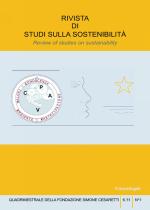Limits of discretion of participants in civil relations in the conditions of martial law.
239-253 p.
This study is significant regardless of the widespread use of such a phenomenon as discretion in civil legal relations when resolving a particular issue. The focus is on the use of discretion by courts and citizens when they are using their rights and responsibilities. With reference to the imposition of martial law, the need for legal regulation of this area is even greater, since the law provides advocating limitations on individuals' freedoms and rights and, accordingly, an increase in the scope of powers of public authorities. With a view to improving the application of discretion in civil legal relations both during and following the declaration of martial law, this study will address this issue and provide substantiated conclusions which could provide as a foundation for more study and improvement of legislation
Throughout the investigation, a variety of specialized techniques were employed, including the comparative legal method, the method of legal interpretation, systemic, and particularly sociological approaches, in addition to general scientific techniques of cognition like dialectic, analysis, synthesis, and analogy. All of these methods were used in a comprehensive combination to form a complex vision of the issue. That is why this study is aimed at improving the scope of application of discretion in civil legal relations both by individuals and the court while it is carrying out its legal duties. [Publisher's Text]
-
Articoli dello stesso fascicolo (disponibili singolarmente)
-
Informazioni
Codice DOI: 10.3280/RISS2024-002014
ISSN: 2239-1959
MATERIE
PAROLE CHIAVE
- martial law, judgment, discretion, discretionary powers, court, human rights


